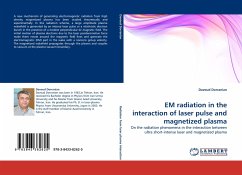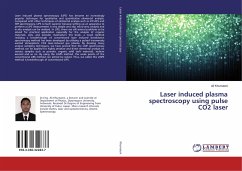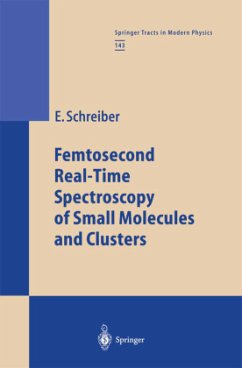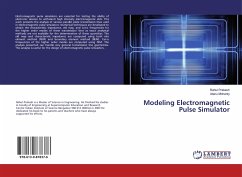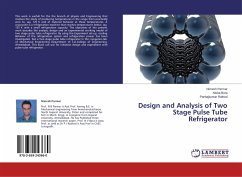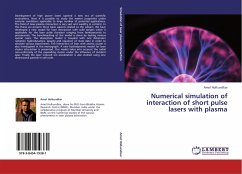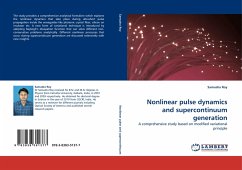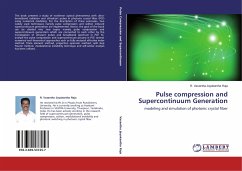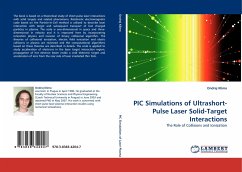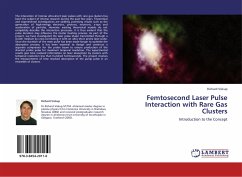
Femtosecond Laser Pulse Interaction with Rare Gas Clusters
Introduction to the Concept
Versandkostenfrei!
Versandfertig in 6-10 Tagen
32,99 €
inkl. MwSt.

PAYBACK Punkte
16 °P sammeln!
The interaction of intense ultra-short laser pulses with rare gas clusters has been the subject of intense research during the past few years. Theoretical and experimental investigations are yielding promising results such as the generation of high-energy electrons, protons, neutrons, x-rays and acceleration of particles. However, existing theoretical models do not completely describe the interaction processes. It is thus evident that the pulse duration may influence the cluster heating process. As part of the project, we have investigated the laser pulse shape transmitted through a cluster me...
The interaction of intense ultra-short laser pulses with rare gas clusters has been the subject of intense research during the past few years. Theoretical and experimental investigations are yielding promising results such as the generation of high-energy electrons, protons, neutrons, x-rays and acceleration of particles. However, existing theoretical models do not completely describe the interaction processes. It is thus evident that the pulse duration may influence the cluster heating process. As part of the project, we have investigated the laser pulse shape transmitted through a cluster medium by cross correlating it with an ultra short probe laser pulse. Since the duration of the main pulse has been made longer to optimise the absorption process, it has been essential to design and construct a separate compressor for the probe beam to ensure production of the shortest probe pulse for maximum temporal resolution. The experimental results give time resolved information on laser absorption by clusters with temporal resolution less than hundred femtoseconds. The project involves the measurements of time resolved absorption of the pump pulse in an ensemble of clusters.



